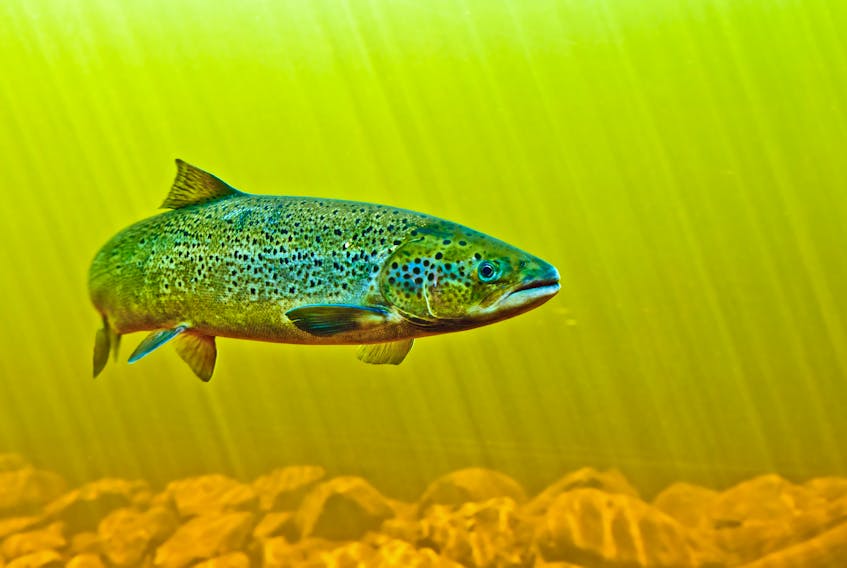The Department of Fisheries and Oceans says it has no reason to doubt its science is giving accurate information about what is happening with Atlantic salmon in Newfoundland and Labrador.
RELATED:
'CORA and SPAWN come out on opposite sides of salmon management plan'
The federal agency was responding to a recent call from the Citizens Outdoor Rights Alliance for more measures to be taken to protect salmon in the province.
The western Newfoundland-based alliance announced what it called its action plan at a public meeting in Deer Lake just over a week ago.
Some of that plan called on DFO to improve its science by changing the index rivers at which it counts salmon returns and establishing a hatchery to restock rivers where salmon numbers are down.
The Western Star asked DFO for an interview last week about the criticism and the suggestions the alliance was asking for. No interview was granted and, a week after the initial request, DFO did provide an emailed response Thursday to some of the concerns raised by the alliance.
In the prepared statement, DFO said it has heard concerns in the past regarding the number of index rivers it monitors, but is confident in the science results and advice provided at both the full stock assessments done in the winter and the in-season review carried out during the angling season.
“These results are based on the best available data and peer-reviewed science methods,” the email reads. “In 2017, we conducted a similar in-season review, which accurately predicted total returns for 2017.”
The declines in salmon returns DFO said it is observing are over a wide geographic range and are highly unusual for the region, the email continued.
“We have not seen declines of this magnitude since the commercial salmon moratorium in 1992,” it stated.
The Citizens Outdoor Rights Alliance also called for DFO to announce its salmon angling management plan in the fall before the following angling season. The emailed statement noted the full stock assessments can’t take place in Newfoundland and Labrador until late February or early March because DFO’s scientists need to wait until the end of the season
and until angling logbooks are submitted.
DFO also conducts a phone survey of non-respondents — people who didn’t submit a logbook — to ensure scientists have sufficient data to assess the previous year’s harvest.
After the science advisory meetings are complete, the department has what it called a robust consultation process to hear the views and opinions of representatives from all concerned groups before making salmon management decisions.
The alliance has charged its concerns were not being listened to at these meetings.
As for the idea of operating hatcheries to boost the population, the stocking of fish into rivers is regulated under Section 56 of the federal Fishery Regulations, which prohibit the release of live fish into fish habitat without a licence.
The department said requests for release of fish are reviewed by joint federal and provincial introduction and transfers committee and issuing a licence for live release of fish is contingent on the activity posing negligible to no risk of disease, genetic or other adverse effects on wild fish stocks.
The email did not mention if DFO would consider operating a hatchery itself or if such an undertaking would have to be proposed and taken on by some other entity.
The Western Star tried to clarify that point regarding hatcheries, along with the criteria for choosing index rivers, but those responses were not provided as of press time Thursday.









